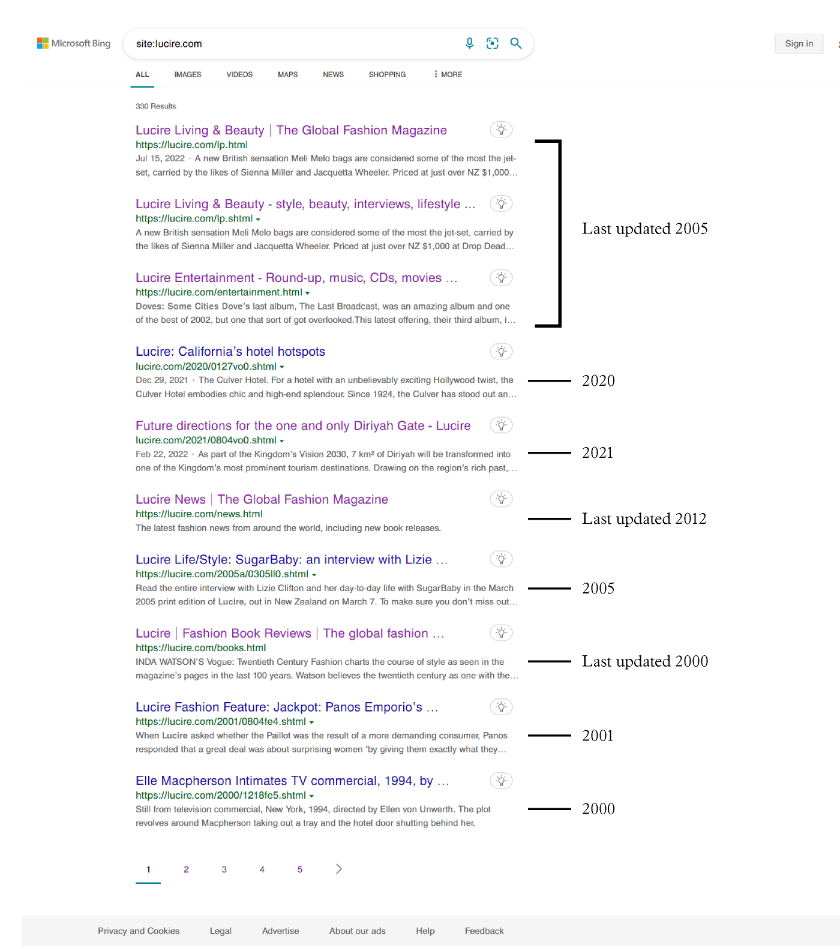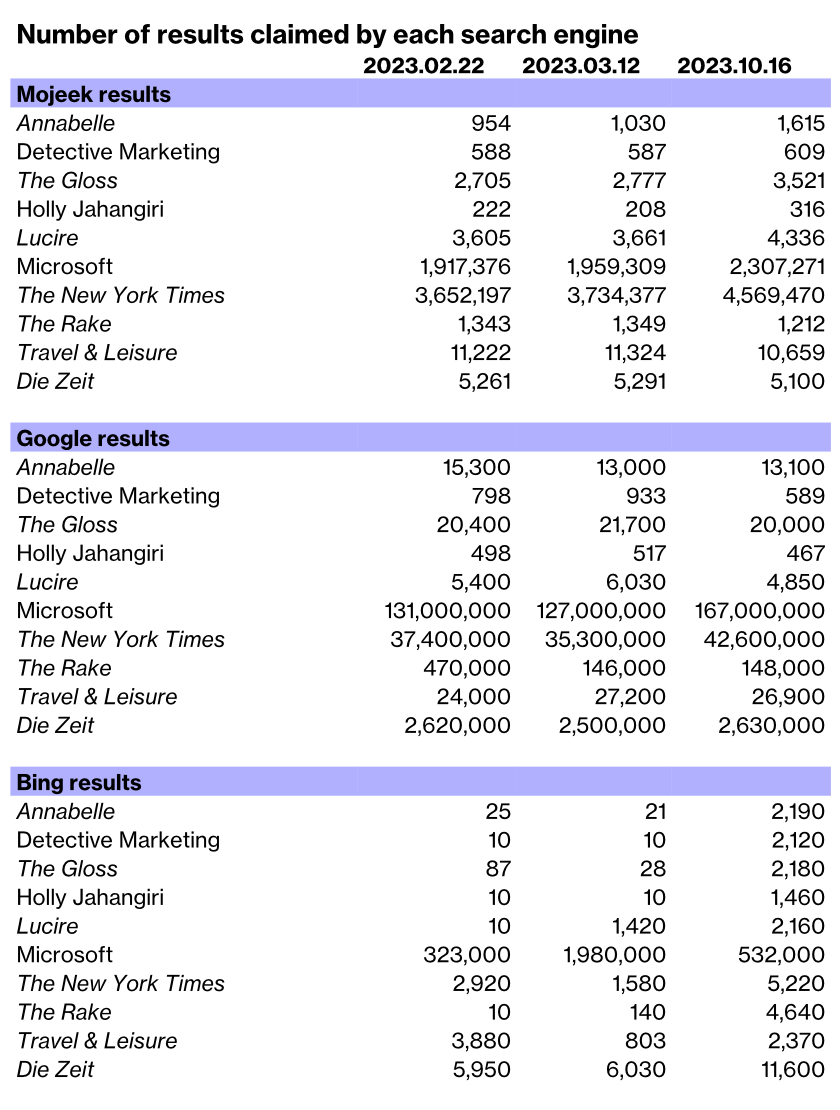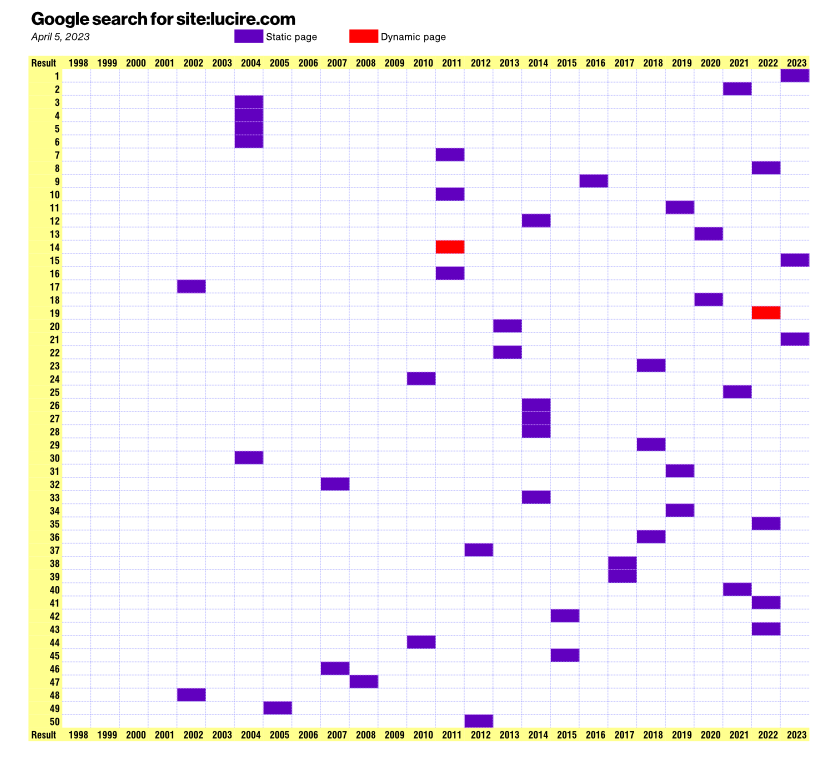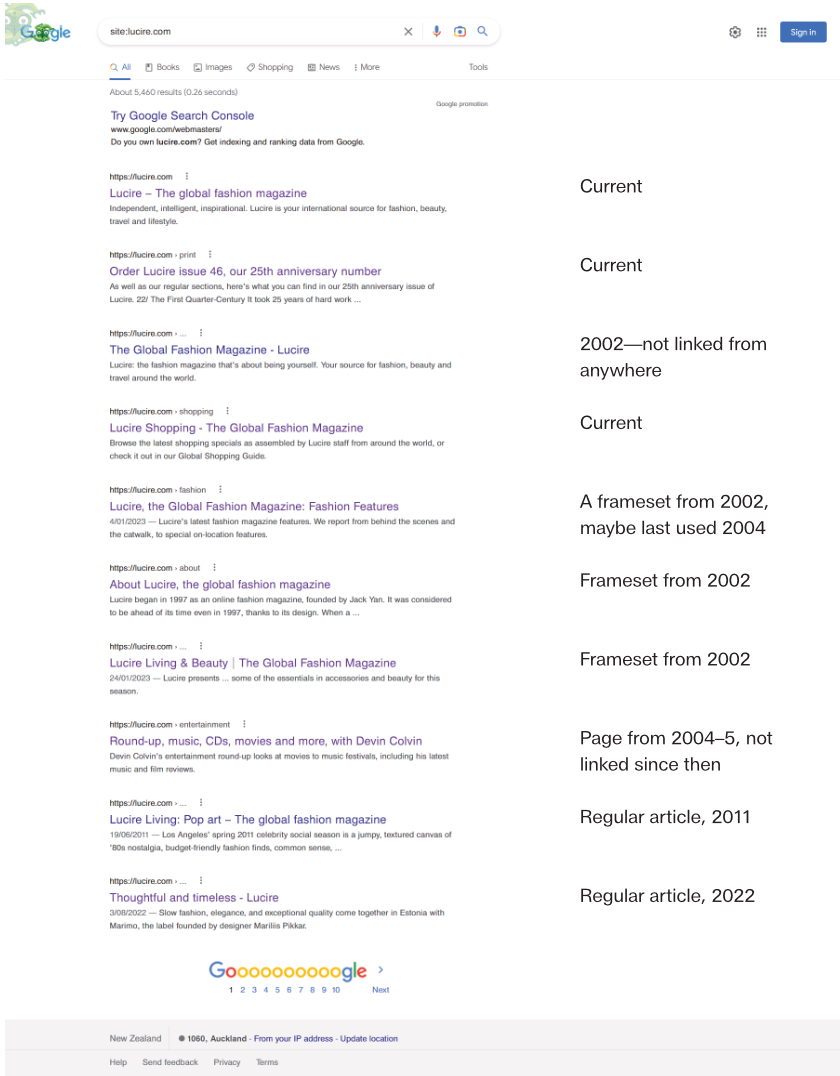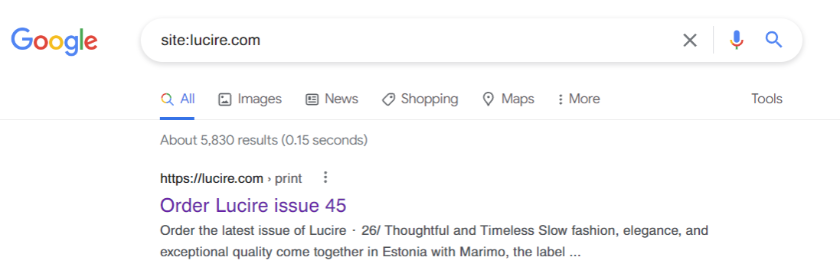This was never supposed to become a search engine blog, but like the Facebook “malware scanner” (or was that scammer?) and Google lying about its Ads Preferences Manager, I was forced to investigate when no one in the media (or, for that matter, the wider internet) did.
And over the years, those posts really helped people and exposed some wrongdoings.
Hence the latest obsession, about Bing, because no one seems to have noticed how Microsoft’s search engine is behaving as though someone at Redmond is unplugging servers left, right and centre.
Someone on Reddit suggested I try Kagi, which is a paid search engine—but from what I can tell, it’s a meta-search (the person who told me about it confirmed this, as did an earlier review).
I’ve seen meta-searches for decades, and admittedly Kagi is the prettiest of them all, but because it’s pulling from Bing and Google, it suffers from the limitations of both, especially the former.
We already have seen how Bing basically favours antiquity over currency, at least where Lucire is concerned, so Kagi’s results contain, in their top 10, pages that have not been updated (or linked) since the mid-2000s. When the Google-sourced results are factored in, it looks a bit better (since there are pages from the 2010s and 2020s), but they still aren’t the most relevant (since it seems Google has been faltering somewhat on site: searches, too).
Here’s a screen shot from Kagi. Results 1, 6 and 7 are current; result 3 is from the early 2010s; results 2, 4, 5 and 8 are framesets from the 2000s; result 9 is from 2014 and hasn’t been linked since then; the remainder are stories which can still be found through spidering but date from between 2011 and 2016.
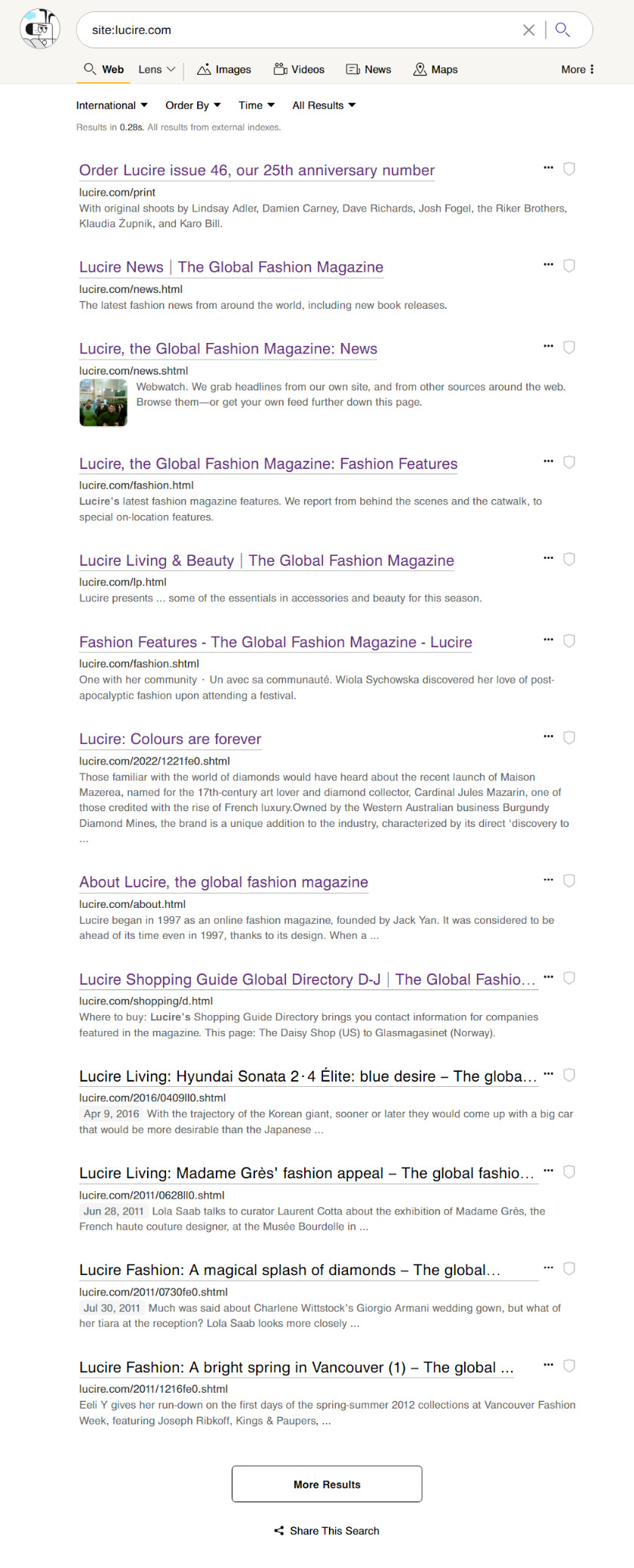
Since it’s a meta-search, I decided to peer into Google and its top 10 do not look good, either. As I don’t tend to use Google, and the recent tests were about grabbing the number of search results, or analysing their currency, I hadn’t drilled down on a site:lucire.com search for a while.
Let’s see how they look today.
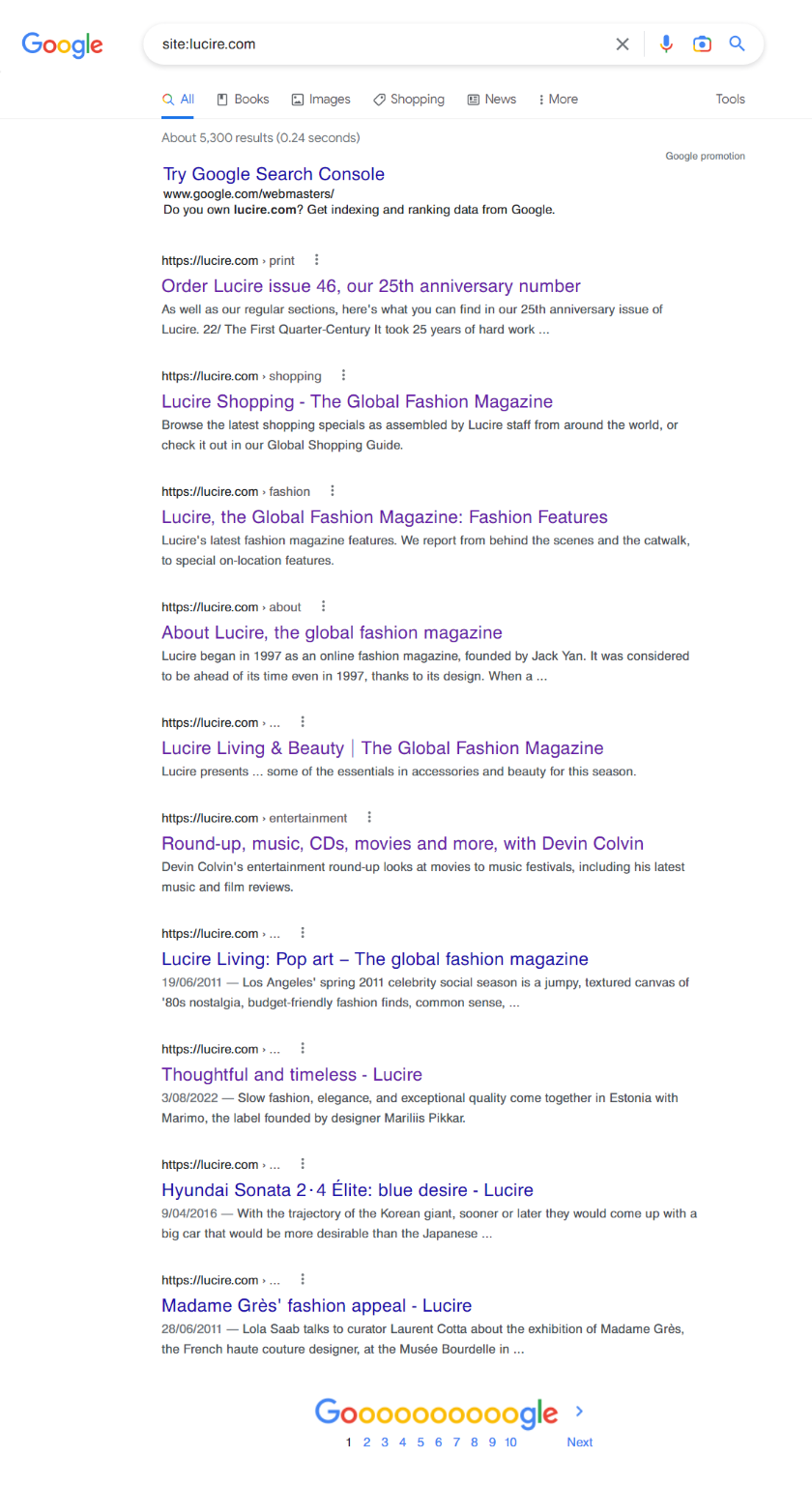
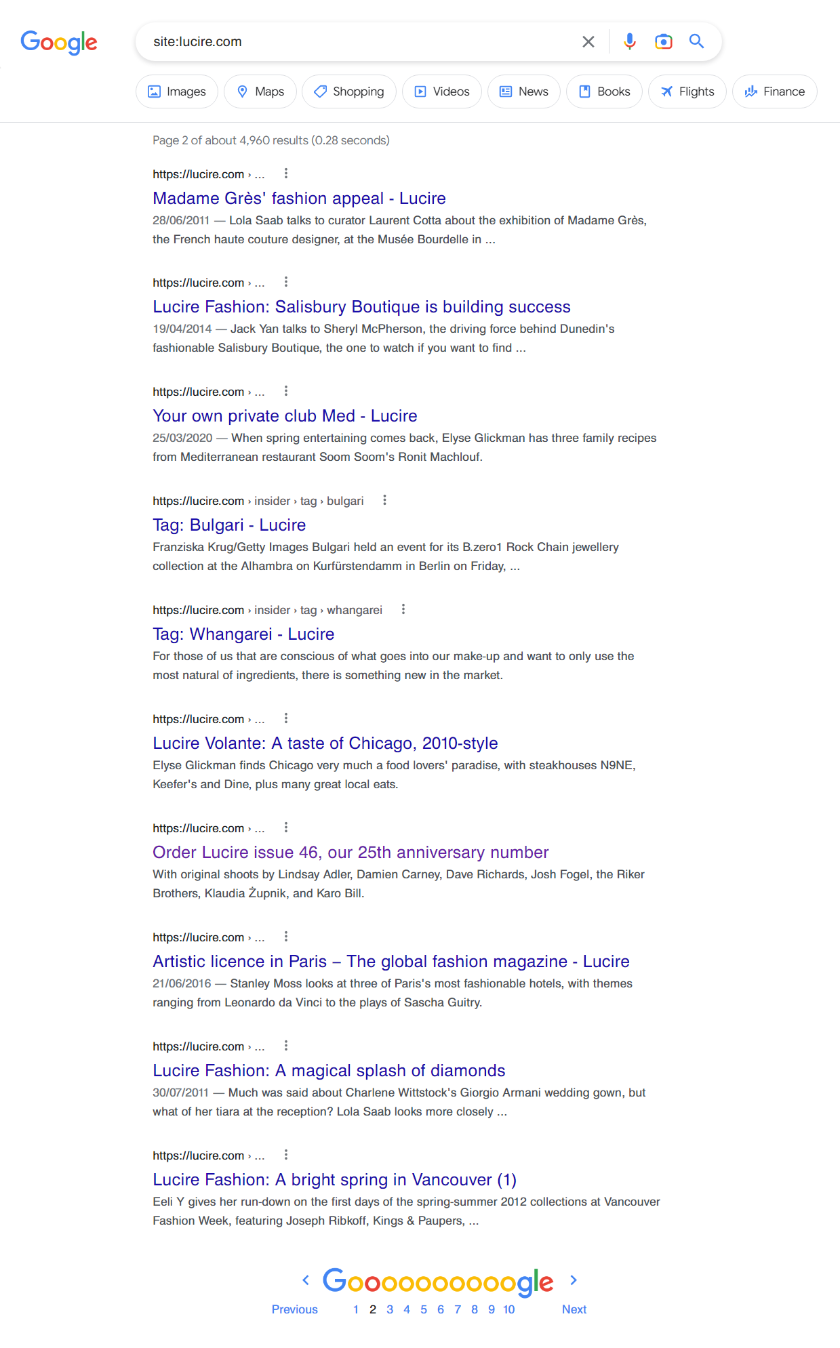
Surprisingly bad. Results 1 and 2 are current; results 3, 4 and 5 are framesets from the early 2000s that have not been linked since then; result 6 is from 2005 and has not been linked since then; result 7 is a 2011 story; result 8 is a 2022 story; result 9 is a 2016 story; and result 10 is a 2011 story.
In other words, the Google top 10 has changed probably due to their algorithm, but I wouldn’t call these relevant to what searchers seek. I could understand the old about.shtml staying in the top 10 despite its antiquity, but some of these top-level pages are really old. Framesets? Seriously?
Result 11 is repeated, which is also odd, while results 14 and 15 are tag pages from the Wordpress part of the site. The 15th is for Whangarei, not exactly the fashion centre of the world.
Google’s fall could explain why these blog posts have suffered traffic-wise as its search results are seriously irrelevant; there’s no connection to the pages’ popularity, either. It’s really beginning to feel like the Wayback Machine there, too.
Mojeek still makes more sense, since the search there requires a term, i.e. site:lucire.com lucire, so naturally it gives you pages containing the word Lucire more.
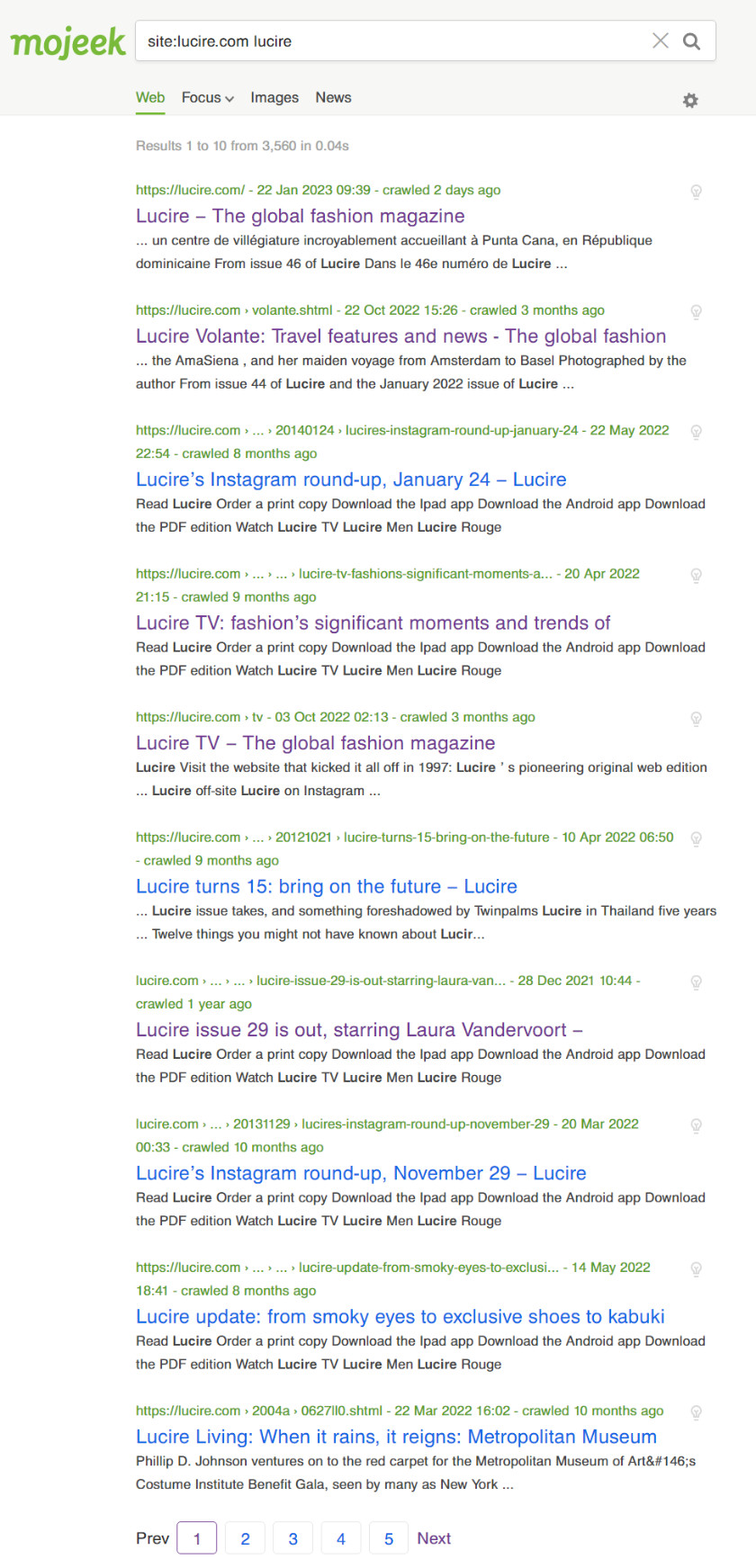
Result 1 is our home page (makes infinite sense!); result 2 a current top-level contents’ page; result 5 is the main page from Lucire TV; while the rest are stories that have the word Lucire contained in them more than what is typical for our site.
It looks like the US search engines are faltering while Mojeek is getting better. What an interesting development. I didn’t have worsening Google search on my 2023 bingo card.
Incidentally, for this website, Google still places my mayoral election pages from 2013 in its top 10; while Mojeek links the home page, the blog, a mixture of posts from 2009, 2020, 2021 and 2022, a transcript of a 2008 speech, and a tag page from 2010. Bing has pages from 2003 and 2012, but also some current top-level pages and, amazingly, three blog posts that are likely to be relevant (two of them critical about Bing from 2022 and 2023, and a 2021 post about Vodafone). In other words, Google has done the worst, in my opinion. Bing only has 10 pages so it has the smallest index but what it showed was surprisingly good! That leaves Mojeek, again, as delivering the best balance of relevance and index size.
